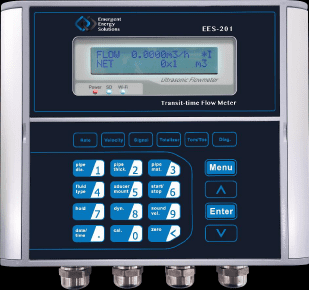BTU Thermal Metering Selection and Installation Support
BTU Thermal Metering Selection and Installation Support
Why BTU Thermal Metering Is Crucial for Industrial Manufacturing Facilities
BTU thermal metering provides industrial manufacturing facilities with precise, reliable measurements of thermal energy consumption, significantly enhancing energy management and operational efficiency. Accurate thermal metering enables manufacturers to closely track heating and cooling system performance, facilitating informed decisions to reduce energy waste, lower utility costs, and improve overall productivity.
By implementing BTU thermal meters, facilities can accurately allocate energy costs, identify inefficiencies or system losses, and optimize processes that rely heavily on heating or cooling, such as steam generation, chilled water loops, and HVAC systems. Enhanced monitoring capabilities also assist in regulatory compliance and sustainability initiatives by promoting more responsible energy use.
Investing in thermal metering solutions allows manufacturers to maximize energy efficiency, decrease operating expenses, and achieve environmental goals—delivering substantial long-term value in today’s competitive industrial landscape.
Frequently Asked Questions: BTU Meter Selection and Installation
A BTU (British Thermal Unit) meter accurately measures thermal energy consumption in heating or cooling systems, helping to track energy usage, allocate costs, optimize efficiency, and identify system inefficiencies. These meters are used to measure chilled and heating water generation from a central closed loop system. These central loop systems distribute heating and cooling capacity to large campuses. Measurement of these distribution loops will help building owners understand energy conversion efficiency at their chillers and boilers and the building thermal loads throughout the heating and cooling seasons.
Key factors include fluid type (water, glycol mixtures), pipe size, flow rates, temperature range, accuracy requirements, pipe material, and system pressure. Consider also installation location and integration with existing energy management systems.
These central loops will contain some degree of glycol mixture to enhance the thermal capacity of the heat transfer medium, which is typically water. A 5 - 10% glycol mixture will reduce the freezing point of the water, which reduces possible frosting concerns at the chillers. In principle, a BTU meter will measure the outbound flow of water and the change in temperature (Delta-T) of the fluid between the supply and return side of the system. This volumetric measurement, coupled with the thermal loss or gain will convert to the BTU gain or loss provided by the central loop.
Subcircuit BTU Metering is also possible outside of the central plant as it is typical for a central heating and cooling loop to service multiple buildings and processes. Measuring the building specific or process specific thermal loads will help building owners allocate the system's thermal capacity to each building or process.
Common types include the following list. As previously noted, each of the meter types shown below are primarily a liquid (water) flow metering options. When these flow meters are coupled with the Delta-T Sensors, the output from the meter would be a BTU or Thermal meter. To better understand the various meter options below, please visit the water meter help page. The key selection for a BTU meter might be the temperature sensor type to be used to measure the delta-T between the supply and return loop. Sensor options include insertion style thermal well sensors or strap on surface mounted sensors. The thermal well temperature sensors would provide the greatest accuracy but would require the owner to install a 1/4" or 1/2" well into the supply and the return lines.
Ultrasonic BTU Meters: Non-invasive, accurate, minimal maintenance, suitable for various pipe sizes.
Electromagnetic (Mag) BTU Meters: Highly accurate, suitable for conductive liquids, robust for industrial applications.
Turbine BTU Meters: Cost-effective for clean fluids and moderate to high flows but require more maintenance.
Vortex BTU Meters: Suitable for steady flow conditions, minimal maintenance, reliable in industrial applications.
Correct sizing is based on maximum and minimum flow rates, pipe size, temperature differential (delta-T), and system demands. Accurate sizing ensures precise measurement and efficient operation.
BTU meter installation should typically be done by trained professionals to ensure accuracy, safety, and compliance with applicable codes and standards.
Follow manufacturer requirements, which typically include adequate straight pipe lengths upstream and downstream, correct meter orientation, and properly installed temperature sensors for accurate measurements.
Calibration is generally recommended every 1–2 years for industrial applications, depending on manufacturer guidelines, regulatory standards, and the critical nature of your application.
Indications include erratic or inaccurate readings, unusual spikes in measured energy consumption, frequent sensor errors, visible damage or corrosion, or a significant drift from baseline measurements.
Yes, smart BTU meters provide real-time data collection, remote monitoring, integration into energy management software, automated reporting, improved accuracy, and simplified maintenance—enhancing facility efficiency and energy optimization.
Ensure correct selection and sizing, proper installation practices (especially temperature sensor placement and calibration), regular maintenance and recalibration, and maintaining stable flow conditions within your system.
Optimize accuracy by:
Selecting a meter specifically suited to your piping and system conditions.
Regular calibration and maintenance.
Ensuring proper installation of the flow and temperature sensors. The temperature sensors will play a large role in the accuracy of the meter as the temp sensor measures the change in thermal energy within the fluid.
Avoiding installations close to elbows, valves, or other disruptions in piping.
To get started, reach out to us at sales@emergentmetering.com or Contact Us for support. We want to equip our customers with the hardware and information needed to have a safe and successful installation as we recognize the power that high quality energy monitoring data can provide.

